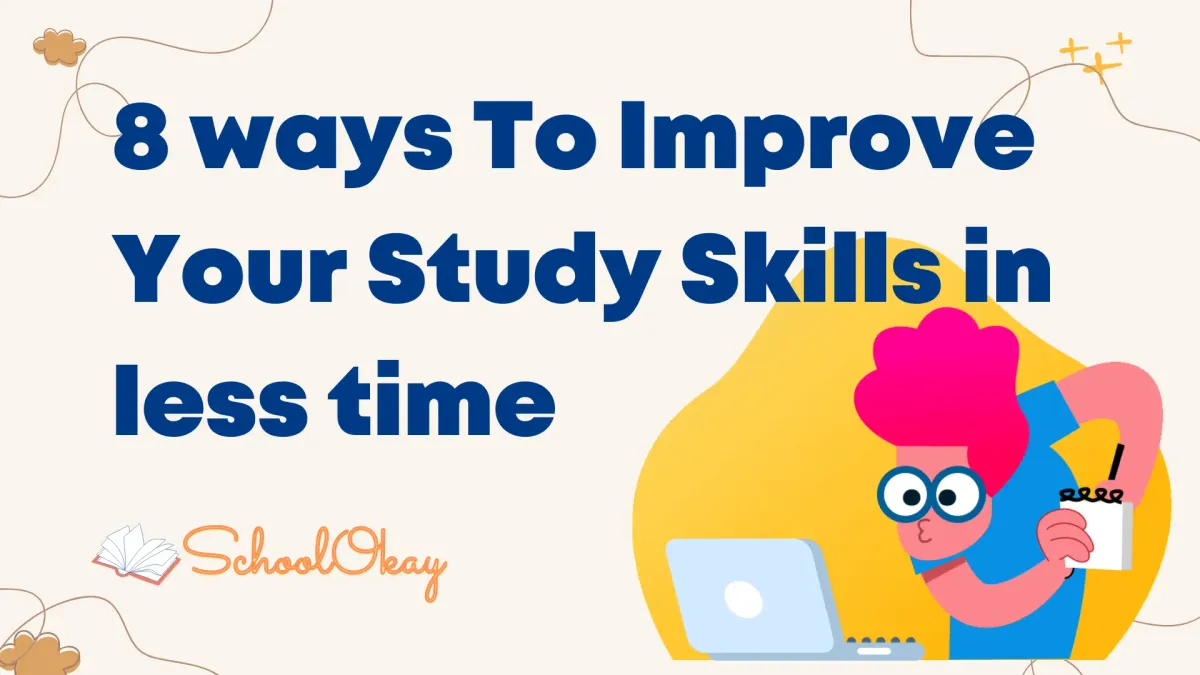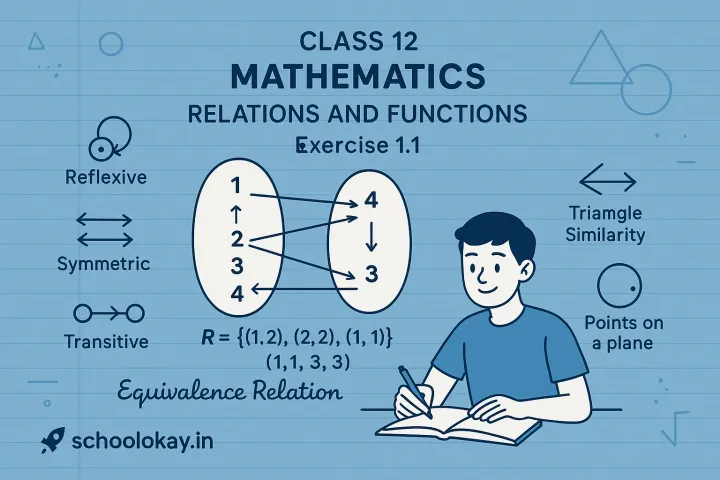Why Study Skills Are a Game-Changer for Students
Your study skills play a major in your academics, so for better academics you need better skills

Learning isn’t just about cracking open a textbook or cramming for exams—it’s a lifelong journey. For students, whether in school or college, building solid study skills isn’t optional; it’s essential. The truth is, those who treat learning as a one-and-done deal after graduation miss the point. A real student never stops learning. From people, experiences, or even the world around them, learning is endless. Stop learning, and you’re closing the door on new opportunities. That’s not just my take—it’s the reality.
But let’s get to the core of it: many students struggle because of bad study habits. These habits aren’t just roadblocks; they’re the difference between thriving and barely scraping by. In this guide, I’m breaking down why study skills matter, what they are, and eight practical ways to level up your game. This isn’t about working harder—it’s about working smarter.
What Are Study Skills, Anyway?
Study skills are the strategies and techniques you use to make learning effective and manageable. They’re not one-size-fits-all because every student’s brain works differently. Some students ace exams with ease, while others grind for the same results. Why? It’s not just talent—it’s preparation. Study skills are about planning, prioritizing, and executing your study sessions to get the results you want.
Good study skills don’t just help you pass exams; they set you up for better grades, less stress, and a shot at top-tier colleges. They’re the foundation for success, and they’re built on habits. Nail your habits, and your skills will follow. Let’s dive into why this matters and how to make it happen.
Why Do Study Skills Matter?
- Better Grades: Effective study skills help you learn more efficiently, leading to higher scores.
- Less Stress: Proper preparation reduces exam anxiety and the fear of failure.
- Future Success: Strong study habits open doors to better colleges and career opportunities.
- Lifelong Learning: These skills aren’t just for school—they prepare you for learning from life itself.
Now, let’s talk about how to build these skills. Here are eight ways to improve your study habits and set yourself up for success, inspired by insights from SchoolOkay.
8 Ways to Improve Your Study Skills
1. Master Note-Making and Note-Taking
Taking notes isn’t just scribbling what your teacher says—it’s a skill that boosts your ability to process, retain, and write faster. According to SchoolOkay, note-taking sharpens three key areas:
- Catching Power: You learn to pick up critical points quickly.
- Retention: Writing helps cement information in your memory.
- Writing Speed: Practice makes you faster and more efficient.
Don’t rely on printed notes or video lectures alone. When your teacher’s explaining something, grab a pen and make your own notes. It’s not about rewriting everything—it’s about capturing what matters. This habit separates top scorers from the rest.
2. Turn Reading into Studying
Love reading novels but dodge your textbooks? That’s a problem. Reading for fun is great, but you need to channel that energy into your course material. Build a habit of sitting down with your textbooks regularly. It’s not about forcing yourself—it’s about making study time as natural as scrolling through your phone. Start small, and soon, cracking open a textbook won’t feel like a chore.
3. Use Active Memorization (Not Rote Learning)
Memorization gets a bad rap, but it’s not the enemy—how you memorize is what matters. Active memorization means engaging with the material, not just parroting it. Ever notice how you can recall every detail of a movie after watching it once? That’s because you’re interested. Bring that same curiosity to your studies.
The trick? Repeat the material in your own words, connect it to something you care about, and avoid rote learning (mindlessly cramming without understanding). Interest drives retention. Find a way to make the topic click, and you’ll remember it without breaking a sweat.
4. Know What You’re Preparing For
Too many students dive into studying without researching their exams or courses. That’s like running a race without knowing the track. Spend time understanding:
- The exam format and requirements.
- The key topics and books you need to cover.
- The skills you’ll be tested on.
This prep work boosts your confidence and makes your study sessions more focused. Check out resources like SchoolOkay’s guide to essential books for 10th graders to get started.
5. Pick the Right Content
Not all study material is created equal. Wasting time on irrelevant or low-quality content is a trap. Research what’s worth your time—focus on books, notes, or resources that align with your syllabus and goals. Content selection is half the battle. If you’re in 10th grade, SchoolOkay’s book recommendations can point you in the right direction.
6. Ditch False Information
This one’s simple: stick to reliable sources. Misinformation can derail your prep and waste your energy. Double-check your resources, and if something seems off, verify it. Your time’s too valuable for nonsense.
7. Ask Questions Like Your Success Depends on It
Confused? Good—that means you’re learning. As SchoolOkay puts it: “Less study, less confusion; more study, more confusion; no study, no confusion.” The more you dive into a subject, the more questions pop up. That’s normal. Ask your teachers, peers, or even online forums to clear things up. Asking questions isn’t a sign of weakness—it’s proof you’re engaged.
Pro tip: Skip the silly questions meant to annoy. Focus on what moves the needle for your understanding.
8. Take Regular Breaks
Your brain isn’t a machine—it needs rest to perform. Studying under stress or anxiety tanks your focus and retention. A relaxed mind works better, period. Schedule short breaks every 25-50 minutes to recharge. Step away, stretch, or grab a snack. You’ll come back sharper and more effective.
Habits Are the Foundation
Here’s the deal: skills don’t exist in a vacuum. Your study skills are only as strong as the habits behind them. Want better results? Build better routines. Study consistently, stay curious, and don’t let stress run the show. It’s not about being perfect—it’s about showing up and improving a little every day.
Wrapping It Up
Developing study skills isn’t just about acing exams; it’s about setting yourself up for a lifetime of learning. From note-taking to asking questions, these eight strategies can transform how you approach your studies. Start small, stay consistent, and watch the results roll in.
Here are other articles you can read:



Share and subscribe to the blog by email.







Comments ()